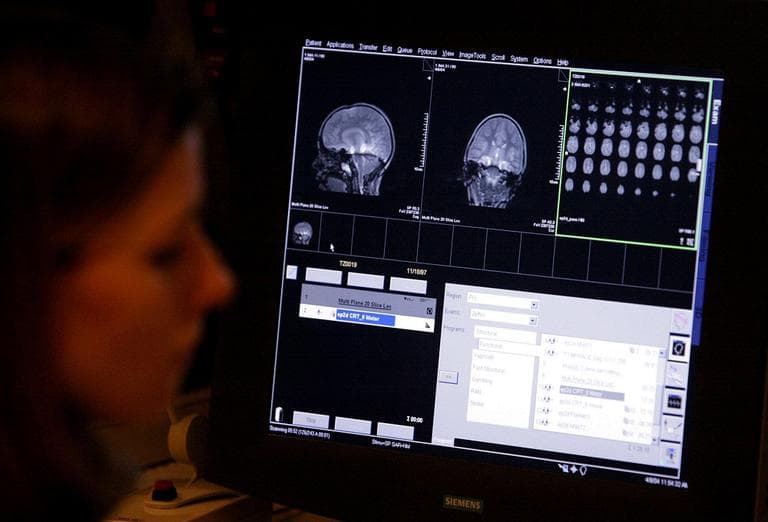Advertisement
Freezer Meltdown Could Seriously Impede Autism Research
Resume
The meltdown of freezers that destroyed about one-third of the world's collection of autism brain samples could cause a major setback for autism and other medical research around the globe. The freezers at the Harvard Brain Tissue Resource Center at McLean Hospital in Belmont housed the largest bank of autism brain tissue in the world. Researchers say the destruction of the tissue may impede or nullify years of research.
Dr.Manuel Casanova, professor of psychiatry at the University of Louisville School of Medicine, discusses the incident. He has run two major brain banks in the U.S. and used tissue from McLean for his autism research.
Autism Speaks stores some of its brain tissue specimen at McLean Hospital. The chief science officer of Autism Speaks released a letter about the incident:
Dear friends:
You may have heard about a very unfortunate situation that has occurred at the Harvard Brain Tissue Resource Center (HBTRC) at McLean Hospital, where Autism Speaks stores some of the Autism Tissue Program (ATP) brain tissue specimens. There was a freezer failure in a unit that stored about a third of the brains that comprise Autism Speaks autism tissue collection. Fifty-three brain samples related to autism research were compromised. Fifty-two of the brains had been bisected, with one hemisphere being placed in formalin and one half being placed in the freezer. The fixed hemispheres for these 52 cases remain available for research or have been assigned to specific research efforts such as the Brain Atlas project. Fortunately, the affected tissue has already been used in many studies. Although this event will affect the availability of tissue for future research, we cannot yet determine the level of impact, but we are confident that we can maintain the momentum of scientific studies based on brain tissue.
HBTRC has been and will continue to investigate how this happened. We have been advised that both of the back-up alarms to indicate a problem in the freezer system failed. This has never happened in their 35 year history. The HBTRC is funded by the National Institutes of Health (NIH) and has a very strong reputation. HBTRC is extremely distressed about this incident and is taking steps to ensure that it will not happen again. Autism Speaks is in the process of conducting its own independent assessment of the situation.
Brain tissue donations are precious. We are extremely grateful to the families who made these donations and have been contacting each family affected. We want to ensure that this unfortunate and rare incident will not negatively affect donations in the future. We remain committed as ever to conducting research that will uncover the causes of autism and allow us to develop more effective treatments. Brain tissue research is crucial to achieving those goals.
Guests:
- Dr.Manuel Casanova, professor of psychiatry at the University of Louisville School of Medicine
This segment aired on June 11, 2012.